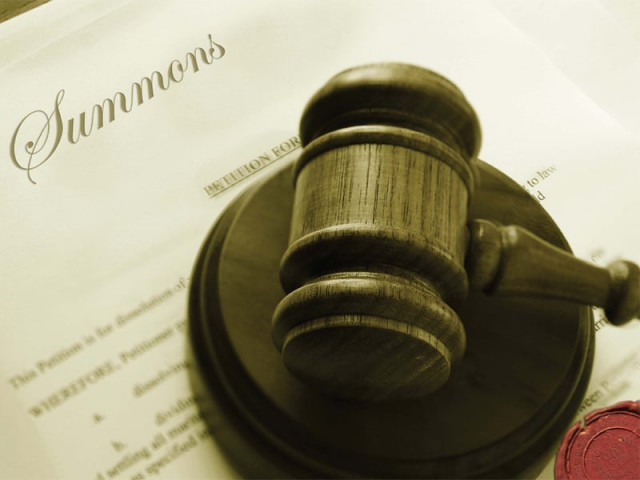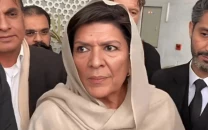Military courts: What all the hue and cry is about
What were the military courts, how did they function – and why.

Military courts: What all the hue and cry is about
Former prime minister Nawaz Sharif created a stir during his last visit to Karachi with his comments supporting military courts that were set up in the city during his second tenure.
What were the military courts, and why has their mention prompted such a response?
A history of the courts
Nawaz, chief of his own faction of the Pakistan Muslim League (PML-N), had been elected for the second time as prime minister in 1997 after a landslide victory against the Pakistan Peoples Party. During that period, MQM and its splinter Haqiqi group were at each other’s throats. The law and order situation of Karachi further deteriorated when philanthropist Hakim Saeed was murdered under mysterious circumstances.
Following this, military courts were formed through an ordinance and a prosecution team was formed on the official notification of the Sindh government.
The courts were established in the Malir cantonment area and operated under the field court marshall, according to the 1952 military act.
At least two people were hanged during that period, including Rafi ‘Bubbly’ on Dec 31, 1998 –accused of brutally raping a minor – and Shabbir alias Habib Baloch – accused of being involved in robbery and murder cases. Advocate Habib Ahmed, who used to supervise the prosecution wing at military trial courts in the 90s, recalls that, “the military trial courts comprised one colonel and two majors.”
These special courts were outside the ambit of the High Courts and Supreme Courts. If an accused appealed against the verdict, it would be heard by an appeal court headed by either a brigadier or a major-general and would, in most cases, uphold the trial court’s verdict.
‘Speedy justice’
Interestingly, the Anti Terrorism Courts under civilian judges established in 1997 continued to run parallel with the military courts. “Even the ATC was formed so that speedy justice could be delivered, but since military courts were formed by the government, all high-profile cases, which included gang rape incidents and dacoity with murder cases, would be tried by military courts,” he said.
Furthermore, unlike civilian courts, no detailed judgments would be handed out in the cases and the verdicts would usually be one line statements, mentioning the charge and the verdict, guilty or not.
“One of the main reasons why military courts ensured speedy justice was that instead of a system where one court would hear all the cases, each case would have its own court in the military setup,” said Habib. Therefore, if there were three cases, three military courts would be set up which would hear and conclude the arguments within a day or two.
Habib insists even today that military courts were not only quick in dispensing justice, but also brought about a remarkable change in the crime rate of the city.
“The military courts lasted a mere two months between Nov 20, 1998 and Feb 17, 1999, but they scared the hell out of all criminal mafias and militants affiliated with political parties and were forced to go into hiding,” he said.
‘Illegal courts’
Sindh High Court Bar Association president Anwar Mansoor Khan, however, said that there is no doubt in his mind that Nawaz’s actions back then were “illegal, which was why the Supreme Court back then had struck down the military courts.”
Former Inspector General of Police Sindh Afzal Shigri also disputed the claim that the crime rate changed drastically.
Defence Analyst Gen (retd) Talat Masood says the problem of civilian courts has always been ensuring speedy justice.
Published in The Express Tribune, January 5th, 2012.



















COMMENTS
Comments are moderated and generally will be posted if they are on-topic and not abusive.
For more information, please see our Comments FAQ